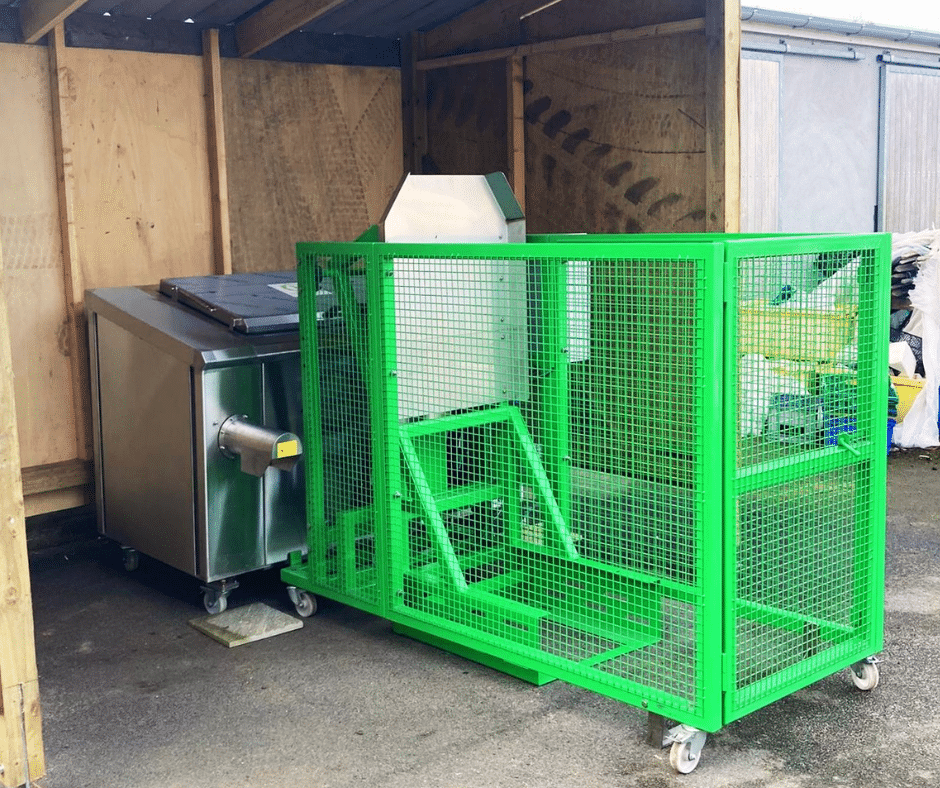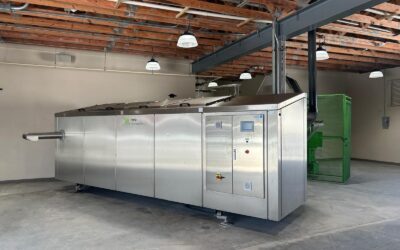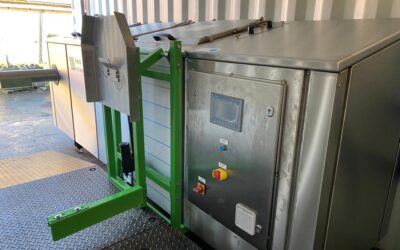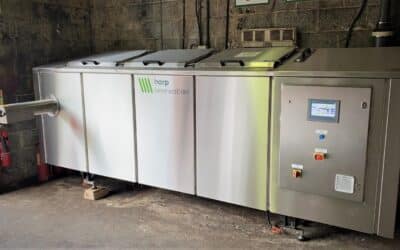Airfield Estate: Leading the Way in Sustainable Farming and Waste Management
Located in Dundrum, Ireland, Airfield Estate is a social enterprise focused on sustainability, education, and community engagement. Established in 1974 by the Overend family, it spans 38 acres of farmland, Victorian buildings, and gardens, offering visitors a connection to food, farming, and nature. Committed to sustainable practices, Airfield Estate integrates organic farming and innovative waste management solutions, including the Harp CX2 food waste processor, which reduces waste, lowers carbon emissions, and creates nutrient-rich compost for the farm.
A Sustainable Agenda: More Than Just a Farm
Airfield Estate promotes sustainability through renewable energy, water conservation, and organic farming. Focused on regenerative agriculture, it restores soil health, boosts biodiversity, and reduces carbon emissions. The estate grows seasonal vegetables, fruits, and herbs, supports local food systems, and minimizes waste through composting, recycling, and reducing plastics. Solar panels and plans for increased renewable energy use align with its long-term environmental goals.
Introducing the Harp CX2: A Game-Changer for Waste Management
One of the most exciting additions to Airfield Estate’s sustainability efforts is the Harp CX2, an aerobic on-site food waste processor. This innovative machine allows the estate to process up to 2,000 litres of organic waste per week, converting it into high-quality compost in less than 24 hours. The process is fully automated, meaning minimal operator intervention is needed, making it both efficient and easy to use.
Specifications
- Equipment: Harp CX2 with a built-in bin lifter
- Waste Stream: Restaurant Waste
- Capacity: 285 Litres/Day, 2000 Litres/Week, 104,000 Litres/Year
- Estimated CO2 Savings: -2 KgCO2eq (- 1.5 Tonnes CO2eq)
The Harp CX2 works by maintaining optimal conditions—temperature, pH, and other critical parameters—for efficient aerobic digestion. By processing food scraps and organic materials aerobically (as opposed to anaerobically), the estate significantly reduces the emission of methane, a potent greenhouse gas. This technology has been a game-changer for Airfield Estate, not only in terms of waste reduction but also in its contribution to carbon footprint reduction.
Reducing Waste, Saving Money and Enhancing Sustainability
Since the installation of the Harp CX2, Airfield Estate has experienced a range of positive outcomes, aligning perfectly with its sustainability goals.
-
Reducing Organic Waste: The Harp CX2 processes food waste from the estate’s café and restaurants, as well as other organic waste materials from the farm. This has dramatically reduced the volume of waste sent to landfills, minimizing the estate’s environmental impact.
-
Producing Nutrient-Rich Compost: The compost produced by the Harp CX2 is a valuable resource for the estate’s gardens and farm. It enhances soil fertility, improves plant health, and reduces the need for chemical fertilizers. This supports Airfield Estate’s commitment to organic and regenerative farming practices.
-
Lowering Greenhouse Gas Emissions: By using aerobic digestion, the Harp CX2 reduces methane emissions compared to anaerobic processes, significantly contributing to the estate’s efforts to reduce its carbon footprint.
-
Saving on Waste Disposal: Implementing this waste management system has also led to a reduction in waste disposal charges, making the estate’s operations more cost-effective.









0 Comments